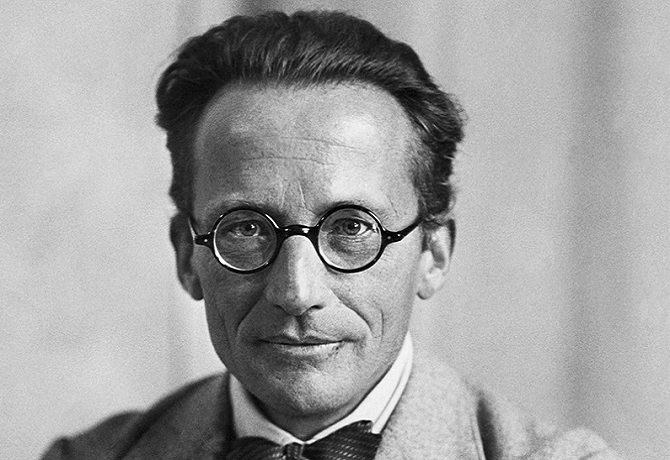Austrian physicist Erwin Schrödinger born August 12, 1887 in Vienna, Austria was a noted theoretical physicist and scholar who came up with a groundbreaking wave equation for electron movements. He was awarded the 1933 Nobel Prize in Physics, along with British physicist P.A.M. Dirac.
Schrödinger entered the University of Vienna in 1906 and obtained his doctorate in 1910, upon which he accepted a research post at the university’s Second Physics Institute. He saw military service in World War I and then went to the University of Zürich in 1921, where he remained for the next six years. There, in a six-month period in 1926, at the age of 39, a remarkably late age for original work by theoretical physicists, he produced the papers that gave the foundations of quantum wave mechanics. In those papers he described his partial differential equation that is the basic equation of quantum mechanics and bears the same relation to the mechanics of the atom as Newton’s equations of motion bear to planetary astronomy. Adopting a proposal made by Louis de Broglie in 1924 that particles of matter have a dual nature and in some situations act like waves, Schrödinger introduced a theory describing the behaviour of such a system by a wave equation that is now known as the Schrödinger equation. The solutions to Schrödinger’s equation, unlike the solutions to Newton’s equations, are wave functions that can only be related to the probable occurrence of physical events. The definite and readily visualized sequence of events of the planetary orbits of Newton is, in quantum mechanics, replaced by the more abstract notion of probability.
His most famous objection was the 1935 thought experiment that later became known as Schrödinger’s cat.In 1927 Schrödinger accepted an invitation to succeed Max Planck, the inventor of the quantum hypothesis, at the University of Berlin, and he joined an extremely distinguished faculty that included Albert Einstein. He remained at the university until 1933, at which time he reached the decision that he could no longer live in a country in which the persecution of Jews had become a national policy.
Schrödinger died on January 4, 1961, in his hometown of Vienna. Schrödinger’s thoughts on the entropic balance of life can be regarded as precursors to studies of how biological prerogatives such as replication, memory, ageing, epigenetic modification and self-regulation must be understood as processes of non-equilibrium complexity that cannot ignore the environment. It is intriguing that similar considerations of environment and contingency are now seen to be central in quantum mechanics, with its ideas of entanglement, decoherence and contextuality.
Book Recommendations:
What is Life? with Mind and Matter by Erwin Schrodinger
My View Of The World by Erwin Schrödinger
Nature and the Greeks by Erwin Schrödinger



